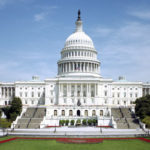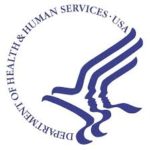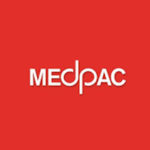The following is the latest health policy news from the federal government for May 24-30. Some of the language used below is taken directly from government documents.
 Congress
Congress
When the House and Senate return to Washington, DC from the Memorial Day recess next week committees will resume holding hearings and markups on health care policy while appropriators will focus on funding for federal fiscal year 2025, which begins October 1. While there seems to be plenty of activity in Congress it is widely expected that only the most essential bills, like emergency supplemental packages and bills to keep the federal government operating, will be passed prior to this year’s elections. Instead, legislators are preparing and introducing bills they hope to pass during the lame duck session of Congress at the end of this year. A few health care policy issues in Congress’s sights at this time include:
- The 340B Prescription Drug Pricing Program.
- This week Representative Larry Bucshon (R-IN-08), along with Representatives Buddy Carter (R-GA-01) and Diana Harshbarger (R-TN-01), introduced H.R. 8574, The 340B Access Act. Though the bill text is not available at this writing, the bill’s summary says it will:
- impose hospital eligibility with specific requirements varying by hospital type;
- establish child-site eligibility;
- codify patient definition;
- ensure that patients receive 340B medicines at a discount;
- restrict PBMs and for-profit entities; and
- increase transparency.
- Next week the House Energy and Commerce Committee’s Subcommittee on Oversight and Investigations will hold a hearing “to learn about recent trends and developments” in the program. Find the hearing notice here.
- This week Representative Larry Bucshon (R-IN-08), along with Representatives Buddy Carter (R-GA-01) and Diana Harshbarger (R-TN-01), introduced H.R. 8574, The 340B Access Act. Though the bill text is not available at this writing, the bill’s summary says it will:
- Physician Payment, Graduate Medical Education, and Consolidation in Health Care. The Senate Finance Committee seeks to address the health care workforce shortage by improving how doctors are trained and by reforming how Medicare pays physicians, including ensuring that physicians are able to remain independent if they wish.
- Site-Neutral Payments for Hospital-Based Outpatient Departments. The House continues to press for Medicare site-neutral payment policies and some now characterize that policy as a way to improve competition in health care and to discourage hospitals and health systems from buying doctors’ practices. These proposals have not gained significant attention in the Senate.
- Defining Safety-Net Hospitals. Members in the House and Senate are exploring ways to determine which hospitals are truly safety-net hospitals. Members want to define the safety net for inner-city and rural hospitals and would use the definition to protect these hospitals from cuts (like site-neutral payment policies) and possibly to direct funding to those facilities.
- Rural Health Care. Both chambers of Congress are looking for ways to address access to care in rural areas, including by extending COVID-era telehealth flexibilities, attempting to find solutions to shrinking access to maternal health care and labor and delivery services in rural areas, workforce recruitment in rural areas, support for critical access hospitals, and access to acute long-term care in rural areas.
- Post-Acute Care. Lawmakers in both chambers are looking at post-acute care, including skilled nursing facilities and improving payments for long-term acute-care hospitals.
There also are a number of health-care “extenders” that will expire at the end of the year, including a delay of scheduled cuts to Medicaid DSH payments and payments for community health centers with teaching programs. There are no current bills to address those extenders but funding for those programs is widely expected in an end-of-year legislative package.
 Centers for Medicare & Medicaid Services
Centers for Medicare & Medicaid Services
- CMS has posted a bulletin updating healthcare common procedure coding system (HCPCS) codes subject to and excluded from Clinical Laboratory Improvement Amendments (CLIA) edits. Find that bulletin here. The updated codes take effect on October 1.
- CMS has posted a bulletin describing how to code for the use of monoclonal antibodies authorized for the treatment of Alzheimer’s disease. Find that bulletin here. This coding methodology took effect on April 7.
- CMS has posted a bulletin updating the gap-filling DMEPOS fees to include update factors for gap-filling purposes. CMS uses gap-filling in establishing fee schedule amounts for new DMEPOS items or services that do not have a fee schedule pricing history. Find that bulletin here. The policies it describes take effect on June 17.
- CMS has published an infographic that provides a detailed look at the demographics, access to care, health status, health outcomes, risk factors, and health care utilization among beneficiaries of Medicaid and CHIP seeking pregnancy-related care and those with a recent live birth. Find that infographic here.
- CMS has sent to states its annual guidance to update the 2025 Core Set of Children’s Health Care Quality Measures for Medicaid and CHIP and the Core Set of Adult Health Care Quality Measures for Medicaid. The CMS letter also provides guidance and outlines CMS’s expectations for compliance with submission of states’ quality measure reporting for FY 2025. The letter addresses mandatory reporting of the Child Core Set and the behavioral health measures on the Adult Core Set; annual updates of the 2025 Child and Adult Core Sets; adherence to mandatory reporting guidance; populations that should be reported and the population exemption process; and data stratification categories and measures for which stratified reporting is mandatory. Learn more from CMS’s core sets reporting guidance letter to the states.
- CMS is seeking nominees for Partnership for Quality Measurement committees that support the endorsement and maintenance and pre-rulemaking measure review processes. Currently the agency seeks nominees for three pre-rulemaking measure review committees – clinician, hospital, and post-acute care/long-term care – and five endorsement and maintenance projects: advanced illness and post-acute care; cost and efficiency; initial recognition and management; management of acute events, chronic disease, surgery, and behavioral health; and primary prevention. Learn more about the committees and their work, the projects for which members are sought, and how to apply from this announcement. The deadline for submitting nominations is June 7.
 Department of Health and Human Services
Department of Health and Human Services
- The national uninsured rate remained at 7.7 percent in the fourth quarter of 2023 and there has been no statistically significant change in the uninsured rate from the previous three quarters of 2023 and a continued steady decline in uninsurance since 2020, the HHS Office of the Assistant Secretary for Planning and Evaluation concludes in a new report. Find that report here.
- HHS and its Administration for Community Living have released a strategic framework for a national plan on aging. The report lays the groundwork for a coordinated effort across the private and public sectors and in partnership with older adults, family caregivers, the aging services network, and other stakeholders to create a national set of recommendations for advancing healthy aging and age-friendly communities that value and truly include older adults. The national plan on aging will advance best practices for service delivery, support development and strengthening of partnerships within and across sectors, identify solutions for removing barriers to health and independence for older adults, and more. Learn more from this HHS news release and from HHS’s “Aging in the United States: A Strategic Framework for a National Plan on Aging.”
HHS Newsletters
- CMS – MLN Connects – May 30
- AHRQ News Now – May 21
- HRSA eNews – May 17 (includes funding opportunities)
Centers for Disease Control and Prevention
The CDC is seeking nominations for membership on the Advisory Committee to the Director of the CDC. The committee consists of up to 15 experts in areas pertinent to the CDC mission, such as public health, global health, health disparities, biomedical research, and other fields, as applicable. Go here to learn more about the committee and how to submit nominations. The deadline for nominations is July 8.
Food and Drug Administration
The FDA has issued emergency use authorization for a new COVID-19 drug: the product Pemgarda (pemivibart). Pemgarda’s intended use is for pre-exposure prophylaxis for adults and adolescents over the age of 12; it is not a substitute for vaccination. Learn more from the FDA’s Federal Register notice, which includes the FDA’s letter of authorization to the drug company, and this FDA fact sheet.
 Medicare Payment Advisory Commission (MedPAC)
Medicare Payment Advisory Commission (MedPAC)
MedPAC has submitted comment letters to CMS in response to the latter’s publication of proposed policy and rate changes. Those letters are in response to:
- proposed skilled nursing facility prospective payment system rate changes for FY 2025 and other proposed policy changes;
- proposed inpatient psychiatric facility rate changes for FY 2025 and other proposed policy changes;
- proposed inpatient rehabilitation facility prospective payment system rate changes for FY 2025 and other proposed policy changes;
- proposed hospice wage index and payment rate update and other proposed policy changes for FY 2025; and
- a request for information about Medicare Advantage data.
Government Accountability Office (GAO)
- Medicaid managed care plans’ prior authorization decisions for children need additional oversight, the GAO has concluded in a new report. Find that report here.
- The GAO has published a report documenting the prevalence of people with disabilities in the health care workforce, how those providers are trained, and what providers can do to improve that training. Learn more from the GAO report “People with Disabilities: Information on the Health Care Workforce and Provider Training.”
- The federal Long-Term Care Ombudsman Program is an independent, consumer protection service focused on protecting the health, safety, welfare, and rights of long-term-care facility residents. All 50 states have an Office of the State Long-Term Care Ombudsman headed by a full-time state long-term-care ombudsman. These programs are responsible for serving individuals of any age who reside in long-term-care facilities, including nursing homes and certain residential care communities, such as assisted living facilities and adult foster homes. In a new report, the GAO interviewed state officials and other stakeholders who described various challenges that make it difficult to provide services, including increasingly complex cases and limitations on staffing and funding. Learn more from the GAO report “Long-Term Care: Information on the Ombudsman Program.”
Congressional Budget Office (CBO)
The CBO recently testified before the House Budget Committee about hospital and physician consolidation and its impact on the federal budget. Find the CBO testimony here.
 Stakeholder Events
Stakeholder Events
CMS – Hospital Open Door Forum – June 4
CMS will hold an open-door forum for hospitals on Tuesday, June 4 at 2:00 (eastern). Go here to register to participate.
HHS – Administration for Strategic Preparedness and Response (ASPR) – Health Care Facility Extreme Weather Resilience and Mitigation Webinar – June 5
HHS’s Administration for Strategic Preparedness and Response and others within HHS will hold a webinar on health care facility extreme weather resilience and mitigation on Wednesday, June 5 at 1:30 (eastern). Speakers will share their experiences and agency staff will highlight related efforts and priorities in building climate-resilient health care facilities. Go here to register to participate.
CMS – Skilled Nursing Facility/Long-Term Care Open Door Forum – June 13
CMS will hold an open-door forum for skilled nursing and long-term care operators on Thursday, June 13 at 2:00 (eastern). Go here to register to participate.
CMS – Annual Public Meeting About New and Reconsidered Clinical Diagnostic Laboratory Test Codes for 2025 – June 25
CMS will hold a public meeting on Tuesday, June 25 at 9:00 (eastern) to receive comments and recommendations on the appropriate basis for establishing payment amounts for new or substantially revised Healthcare Common Procedure Coding System codes being considered for Medicare payment under the Clinical Laboratory Fee Schedule for calendar year 2025. This meeting also will provide a forum for those who submitted certain reconsideration requests regarding final determinations made last year on new test codes and for the public to provide comment on the requests. Go here to learn more about the meeting, including how to submit information and questions and register to participate.
CMS – Home Health, Hospice, and DME Open Door Forum – June 26
CMS will hold an open-door forum for home health, hospice, and durable medical equipment operators on Wednesday, June 26 at 2:00 (eastern). Go here to register to participate.
CMS – Medicare Advisory Panel on Clinical Diagnostic Laboratory Tests – July 25-26
CMS’s Medicare Advisory Panel on Clinical Diagnostic Laboratory Tests will hold public meetings on Thursday, July 25 and Friday, July 26. The panel advises the Secretary of the Department of Health and Human Services and the CMS Administrator on issues involving clinical diagnostic laboratory tests. Learn more about the meetings and how to participate from this CMS notice.

 Centers for Medicare & Medicaid Services
Centers for Medicare & Medicaid Services Stakeholder Events
Stakeholder Events